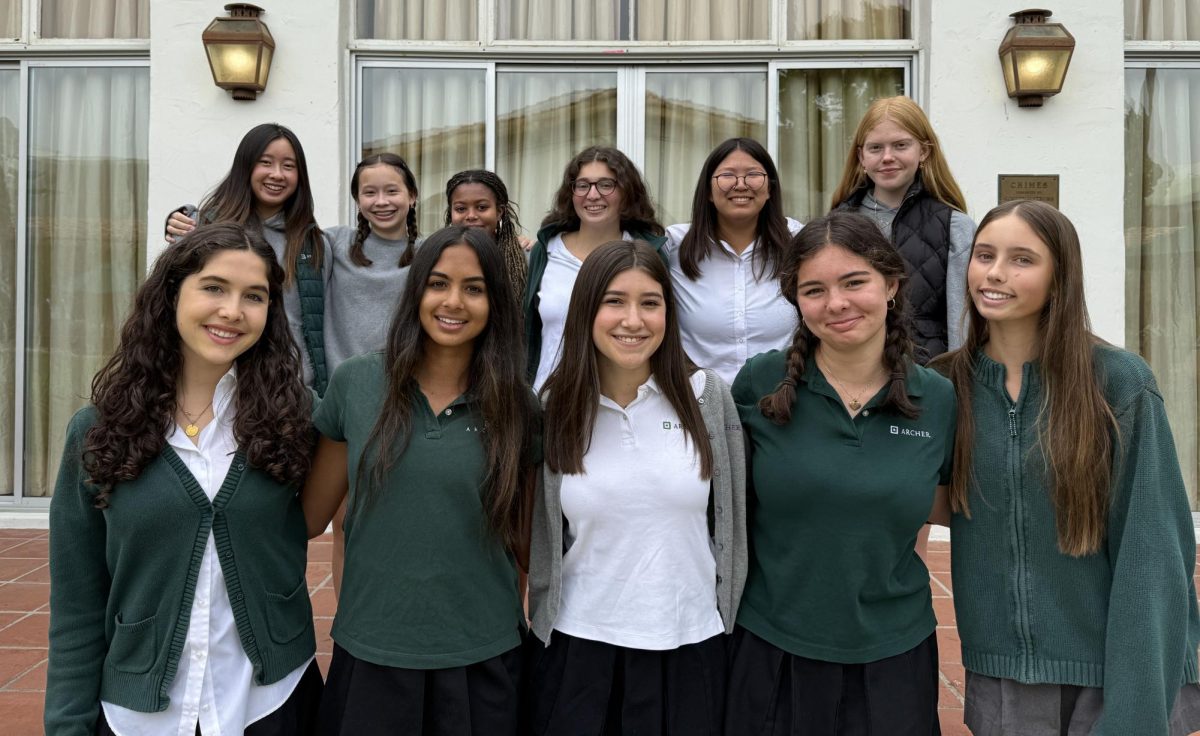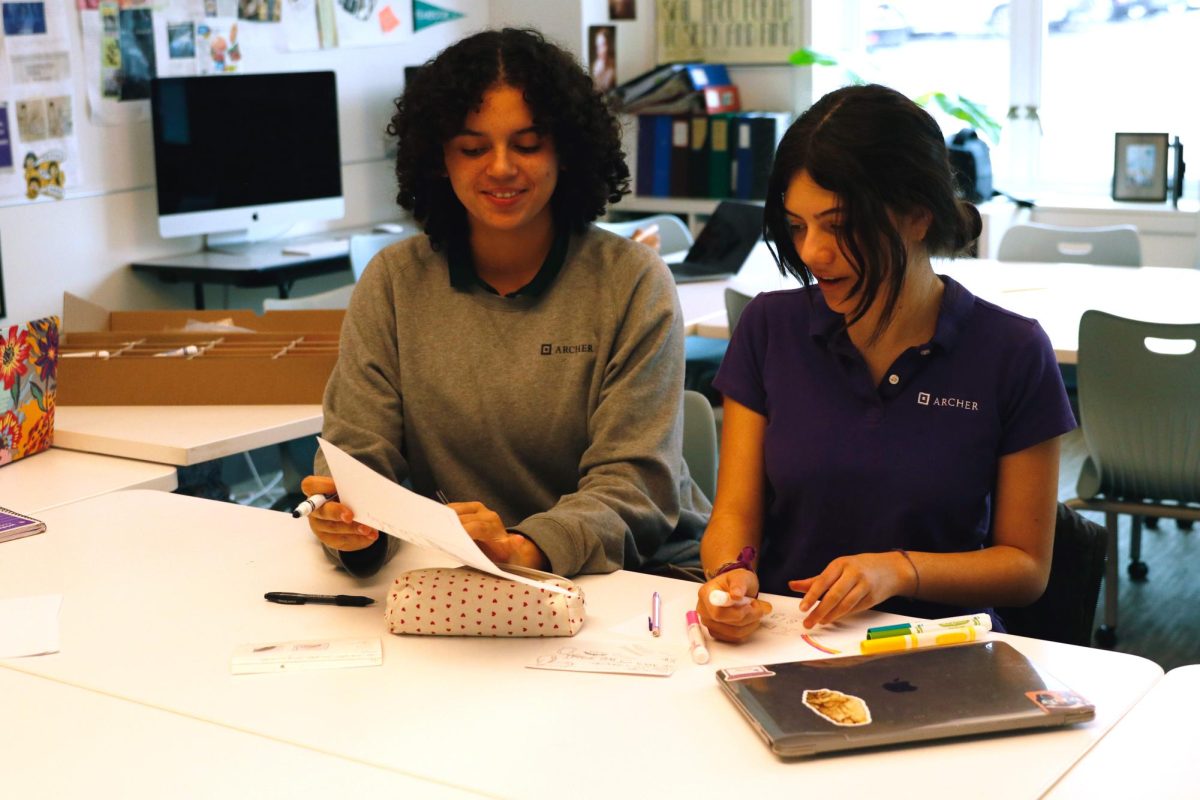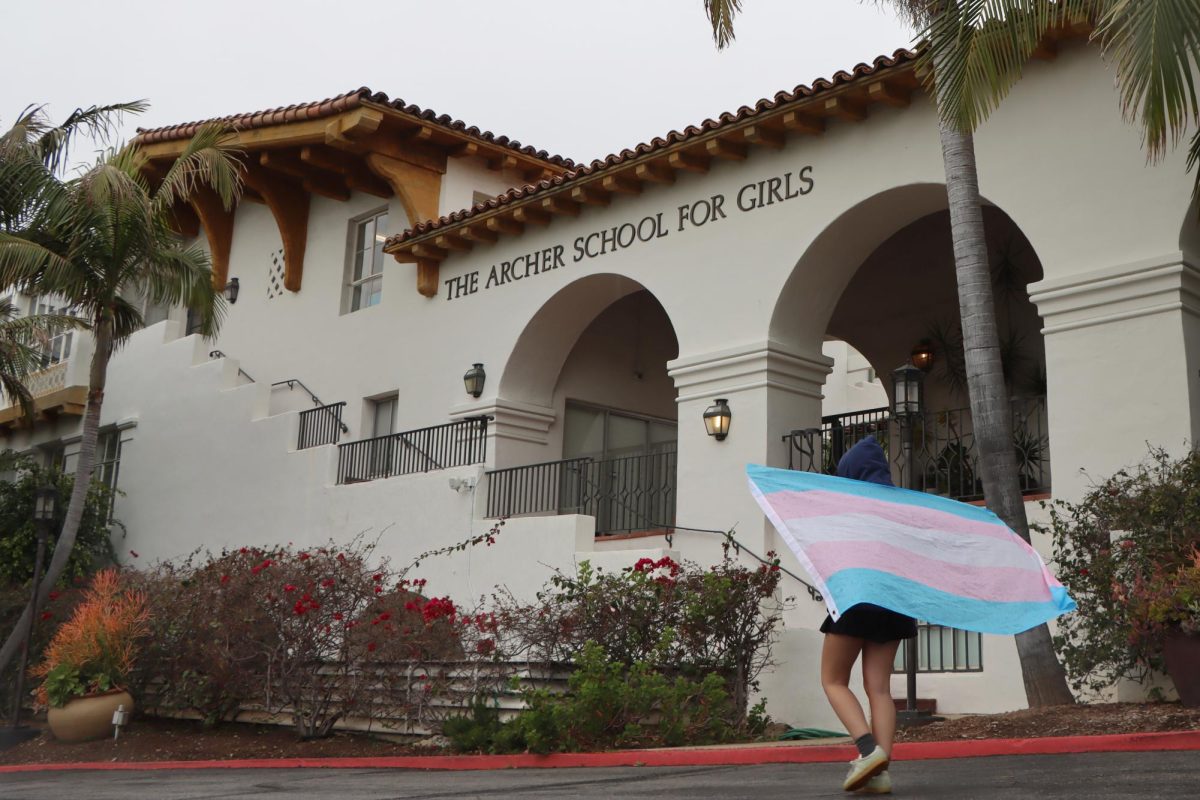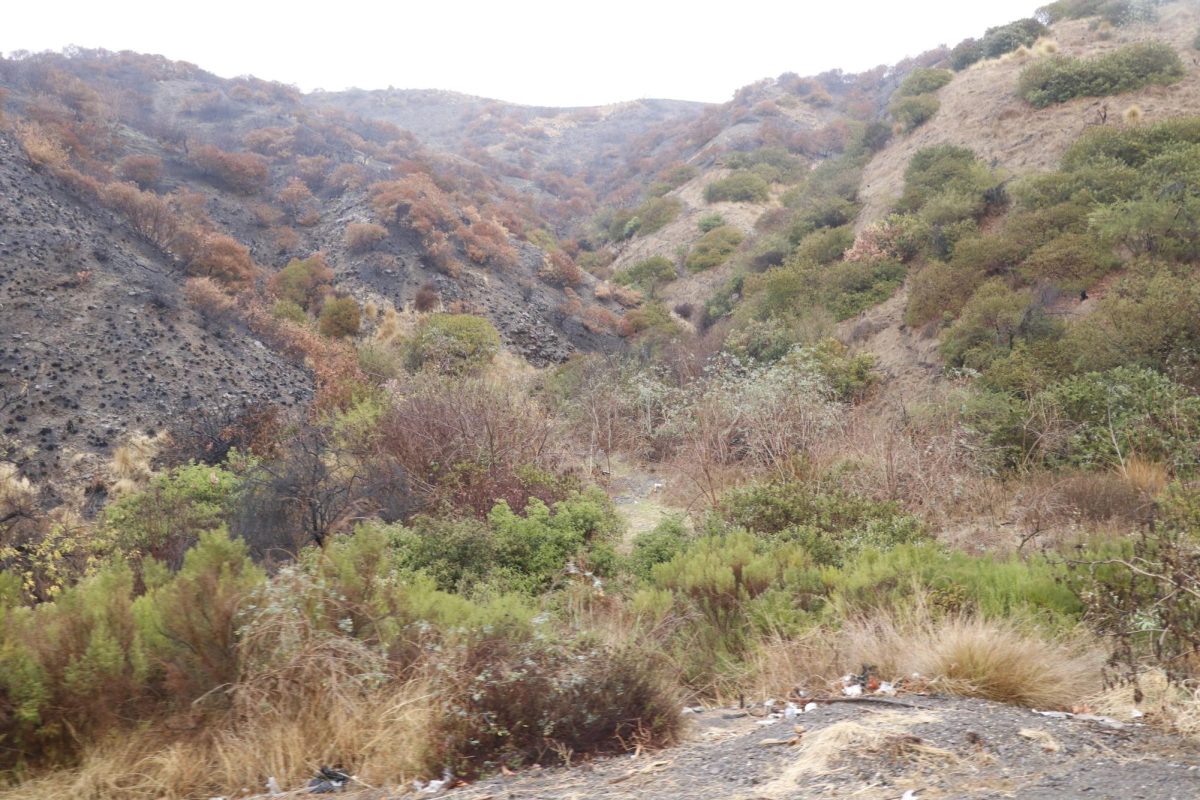You may have seen students with press badges running around campus for interviews, or even read some of their articles from the weekly newsletter. But who are the faces behind the stories? The Oracle sat down with Editor-in-Chief Surya Patil, Assistant Editor-in-Chief Zoe Gazzuolo and Features Editor Francie Wallack to discuss their leadership roles within the publication and how young people can be involved with and interact with journalism.
Why did you choose to join the Oracle and eventually seek an editorial position?
Surya Patil [SP]: I joined the Oracle in ninth grade as kind of a fluke. I was new to the school, and I always really enjoyed learning about current events, so I thought that it would be a good opportunity to learn more about them and also write about them. I was really inspired by the editors in ninth grade, because they were just doing such cool stuff for the community. So I decided to apply to be sports editor, because I’m really passionate about sports and I play tennis. And then from there, my love for journalism just grew, and I got more involved with the Oracle, and I started writing about a lot more current events and topics that I was passionate about and ones I discovered through the Archer community.
Francie Wallack [FW]: I originally joined the Oracle just because I loved writing, but I think I didn’t realize that it would turn into more of a passion for me. When I started writing in my intro year, I realized that it was really something I valued. Learning first semester about the First Amendment and freedom of speech and how special it is that Archer has complete free rein over our publication, I realized that I was a part of something bigger, and that it wasn’t just the writing that mattered, it was really the storytelling. So that’s ultimately why I decided to become an editor, just because I wanted to get even more involved in decision-making and take a bigger leadership role within the Oracle so that I could have an even bigger impact.
Zoe Gazzuolo [ZG]: I joined because I really enjoyed the analytical writing I was doing in my humanities classes, so I wanted to try out journalistic writing as well. I also saw the Oracle as an opportunity to become more involved with our school’s campus and community, and learn more about everybody’s stories, especially people that I wouldn’t get the chance to know otherwise. After my intro year, I realized I wanted to deepen my impact and contributions to the Oracle by becoming an editor.
What does it mean to you to be a leader in journalism?
[SP]: I think being a leader of the Oracle is obviously a really big privilege.I love that I get to be on a publication that cares so much about free press. I mean journalism right now —there’s a lot of threats to it in the US, and so being able to see the value of journalism is really important. Participating in school newspaper is a great way to do that, and also to lead your school community.
[FW]: Being a leader on the Oracle is something that I don’t take lightly. I really value what I’m learning as an editor, and I really don’t take for granted the amount of responsibility that we have in this position. Sometimes we forget how lucky we are to be at a school with free press and complete freedom over what we’re writing. I feel a great responsibility to make sure my coverage and the coverage of the stories that I’m editing is really great and in depth, and overall represents the Oracle in a nice manner.
[ZG]: I view my role as being an editor on the Oracle as not just helping the other staff — especially intro students — writing the best articles they can write, but also helping them become the best journalists they can be. Whether that’s through leaving feedback on an article or helping them come up with story ideas or giving them any advice on things that I’ve learned over my time at the Oracle. Then, in terms of being a leader in journalism, for especially, for our school, I think especially in times of distress it’s easy to forget, but we are often the people that students go to.
How do you feel young people can connect more with journalism?
[SP]: A lot of news outlets nowadays have social media accounts, which is great, on Instagram. But also I’d recommend that everyone just downloads the New York Times or LA Times app and just read through the headlines at the very least, in the morning, and you get a sense of what’s going on in the world, and it really doesn’t take up too much time.
[FW]: I think with social media a lot of our generation is connecting more with journalism, and they might not even know it. I think when people are reposting things, or if they’re seeing a current event on their feed, they might not realize that that is a form of journalism, but it is, and that’s how I think that’s how a lot of young people are getting their news. That does come with its respective set of issues, because we know that sometimes it can be less credible, or people might not fact-check their sources.
[ZG]: Adding on to Francie, news and journalism has become so accessible now through social media and holds a lot of weight. I guess if you want to get more involved or start somewhere, I think starting with the stories that mean most to you or you’re most interested in or are impacting your local communities is a good way to start.
What steps does the Oracle take to connect with the Archer community?
[FW]: I think we definitely try to see what stories we are covering. And so we’ll do an inventory every once in a while, and we have our source tracking doc. We have many systems in place to make sure that we are covering a wide variety of things that happen at Archer and in the world, and how we can localize that to make it relevant to our community. I think a lot of things we do on the Oracle make things more accessible and easy for community members to understand.
[ZG]: I think when coming up with story ideas or important events and topics to cover, talking to students or faculty or anybody in the Archer community or greater LA community, is really valuable. Learning the stories that people want to be told, and also all those stories that are impacting those around is important.










